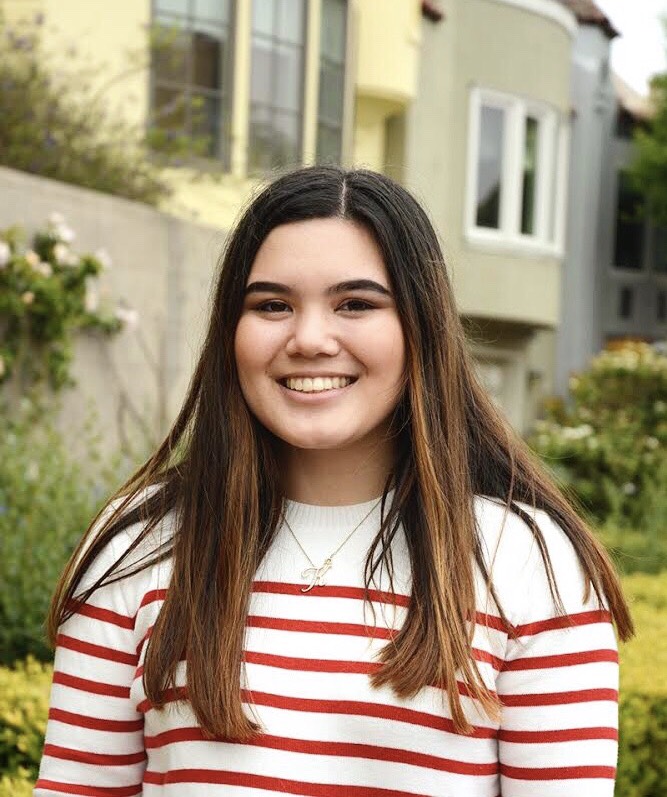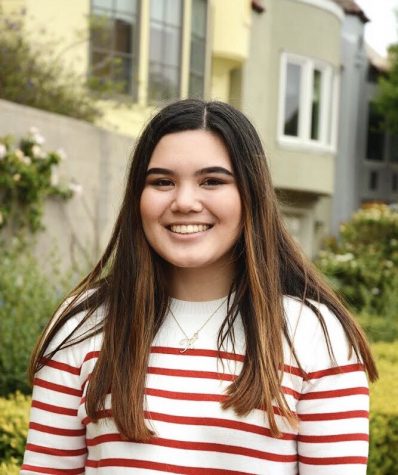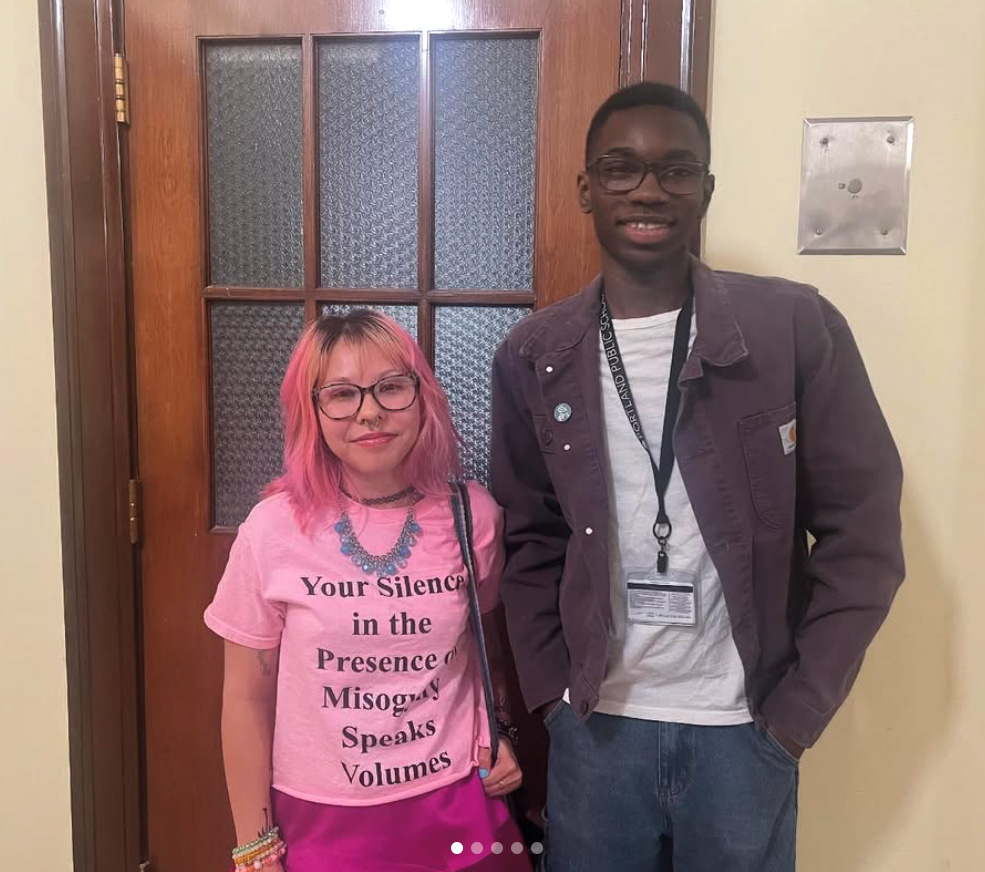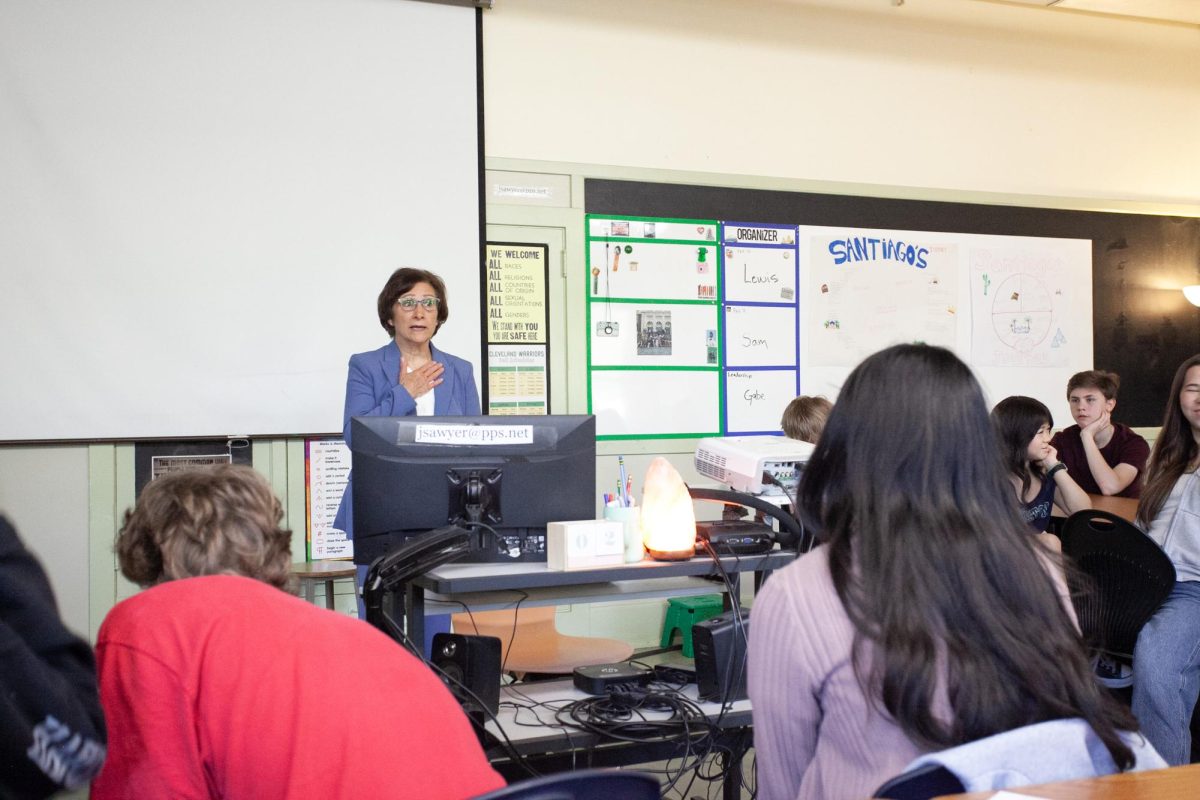To IB or not to IB
My Experience as an IB Diploma Candidate Senior
November 20, 2020
Editor’s note: This story originally ran in the Clarion in the summer issue, 2019. The author is a sophomore at the University of Oregon’s Honor College and is a layout editor for the Emerald, the student newspaper.

The big question for forecasting underclassmen is whether or not to enter the International Baccalaureate (IB) Diploma program. As an IB senior, I would like to share my experiences in hopes of helping others decide what’s best for them in terms of future plans. I am not here to degrade or promote this program, but rather explain how I went through it, with the intent of helping you develop your own opinion and what next steps to take.
In a nutshell my answer is this: Yes, you should try it. You can always drop it if it doesn’t work out for you, but you can only enter when you forecast for junior year. It’s also up to each person on whether or not it will fit into their lives academically, socially, and personally. IB is not the most accessible program for every single student, as it requires a lot of free time, technology, and out-of-class communication.
Diploma requirements
Diploma requirements are the extra requirements that non-diploma students do not have to do. This includes six IB exams, 150 service, active, and creative hours, a service project; an extended essay, and a Theory of Knowledge essay and presentation. It’s a lot of extra work, but I’ll explain each in more detail.
The extended essay is a colossal 4000 word essay about anything of your choosing within an IB subject. This is the point where many seniors decide it’s time to drop the diploma. I was in this exact situation last September. I ultimately stuck with it, and I wrote a great paper on anxiety and cognitive therapy that I’m proud of. Yes, it was difficult and required outside time, but it’s definitely doable. The hardest part was narrowing in on a specific topic and research question, but each student is paired with a helpful advisor.
The required Theory of Knowledge course is exactly what it sounds like: you learn about how you know what you know. While a bit confusing, the class itself isn’t too bad; it’s a lot of critical thinking, and should not be the deal-breaker of doing full IB or not.
Creative, active, and service (CAS) hours accumulate to 150 hours minimum. You have two years to complete these, so don’t stress about this part too much. It will also allow you to connect with your community in new ways. You must also do a CAS project, which is a service-oriented project. I got to take my passion for the environment and implement a bottle and can recycling campaign at Cleveland. You will get a lot of guidance for this project, but it is time-consuming, as it took me over a month to complete from start to finish.
Classes and teachers
One big concern that students have is the ability to take classes they want and the difficulty level. I have a hard time with math and science; I prefer writing and humanities courses. Full IB will constrict some of your schedule with two required courses (TOK junior year and IB Diploma Workshop senior year), but the program provides enough options for you take the classes you want, and the required classes were not the most challenging of all my courses. I took an environmental studies class for my science credit, and I finished my fifth year of math in my junior year. I was able to be done with STEM by senior year, and I was still eligible for the IB Diploma. Now I take classes I’m more passionate about such as newspaper (and I even have a free period!). Other peers of mine who like math and science are able to take higher level calculus and physics, and often they have room for other electives that pique their interest, like yearbook. That being said, if you want to take five science classes or five art classes, it may be harder to fit that into a diploma schedule as you have to hit certain subject requirements.
As for the difficulty, there are standard level and higher level classes. In order to reach the higher level classes, you will have to take the standard level class. This will allow you to discover whether or not you want to continue the subject further in your senior year. The amount of homework you will get will depend on the class. I had more homework junior year, most likely because I have less classes this year.
If you want to take a lot of IB classes but not necessarily write the extended essay and take the required courses, there is also the option to get an IB certificate. Many students opt to do this, or they enter this eligibility when they drop the IB Diploma. You may still test in any classes you want and get a certificate as recognition.
This next part is subjective, but I have had great experiences with all of my IB teachers. They know the IB curriculum, understand that it’s a rigorous program, and are there to help you. We also have a wonderful IB coordinator, Jennifer Wiandt, who works closely with you to ensure that you will be on track. I have also had good experiences with all of my peers. In the diploma, was a community of people who want to achieve the same academic goals as me.
Writing
IB will make you write a lot. An Internal Assessment (IA) is an IB essay of roughly 2,200 words. You will have to write one in most of your IB classes. They are required in classes you test in, as the IA grade goes into your IB exam grade. Sometimes they’re fun and sometimes they’re exhausting. Unlike most papers you are assigned, you will be able to write your IA about almost anything within the subject. They will be helpful for preparing you for college and developing your writing skills. I was able to write about sexual abuse and reproductive rights which I enjoyed. This may be a reason for you not to join full IB; it’s already a lot of required writing without the diploma, but for me it was worth it.
College worth
Many students want to know the value of IB in terms of college. You may be wondering; Will colleges accept your IB credit? Will it help you get into your dream school? I entered the program without the intent of using it to get into college. It was more about wanting to push myself. I’m going to be attending the University of Oregon. At first I thought the diploma might not have been worth it. But I realized that if I did well on my exams, I could get many credits transferred. It’s possible that being in the program allowed me to qualify for certain scholarships. So yes, it may be worth it in terms of limiting my student debt, but keep in mind that not all schools will transfer the exam credit.
Some students do enter the IB program to help them get into good schools. Telling a college you’re an IB Diploma candidate definitely could increase your chance at acceptance. However, I wouldn’t base the decision of doing IB on where you want to go to college. Many of my peers got into amazing and prestigious schools like University of Southern California and Pitzer College without being in the program.
Financial and time commitment
I won’t beat around the bush – it’s expensive to take six exams. But there are ways to get the fees waived. Also, if you do well, its possible to get college credit at some schools, which, in the long run saves more money. This further ties into the accessibility issue of IB. It’s assumed that all students have access to technology to write an IA outside of class and study digitally, or have $800 to drop on exams. However, it’s easier for some students than others to get access to these resources. I spent a lot of money (more than I wanted or planned on) running an experiment for my environmental studies IA. This is not something that everyone would be able or willing to do.
The IB diploma is time consuming. I had a job at the beginning of the year and I worked around 20 hours a week. It was hard to balance work and school so I had to sacrifice the job until I could get more control over my life. This isn’t always an option for some students who have to prioritize their jobs.
In conclusion
Students should take advantage of the fact that Cleveland has an IB program, even if that means taking only a few classes. We are one of only two PPS high schools with an IB program. Some people try and get their kids into an IB elementary school from a young age because they value the curriculum that much.
If you want to study at an international school, it’s likely that IB will be recognized and it could help you get in. However, IB is less recognized within US colleges than AP is, so unfortunately many take higher IB scores than AP to get the same credit.
I would also like to briefly recognize the underlying stigma that I’ve noticed has infiltrated Cleveland about the IB Program. There is absolutely no difference in academic talent or passion in a student who does IB or doesn’t do IB. There is an unnecessary pressure on students to be a part of IB from friends, parents, and the school itself. I don’t want underclassmen to feel as though it’s the only path like I did as a sophomore. There is nothing wrong with starting the program and then wanting to drop it, or not even joining in the first place. Don’t compare yourself to your friends or classmates. Focus on yourself and your academics, because no one knows you better than you. I know people who are very satisfied and fulfilled with their high school experience that never did the IB program, and others who feel the exact same way but did do the program.
Ultimately, it’s hard to make the decision on whether or not to do full IB. It requires the sacrifice of time and effort. A coping mechanism of mine is scrolling through Twitter and Reddit looking at IB memes and laughing sadly at how much work I’m doing as I procrastinate on an internal assessment. But it also builds character and has taught me how to tackle college-style assignments. I’ve developed some stellar writing and research skills and I feel more prepared for my future and college. Try it out, but leave the program if you find it’s not working for you.
I hope that I was able to provide some more information to anyone considering the IB program. It was not an easy process for me, but it was fulfilling. Hopefully, you can now make the decision of whether to IB or not to IB.










